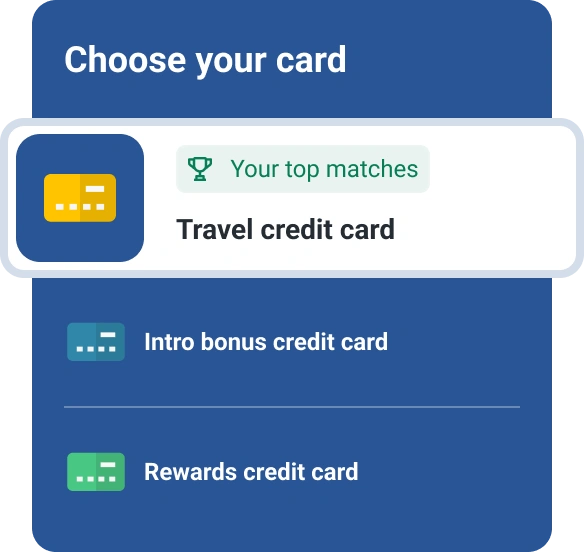What Is the Difference Between TSA PreCheck and Global Entry?

TSA PreCheck and Global Entry are two federal programs designed to simplify the journey through airport checkpoints. But there are some key differences between them. For instance, PreCheck is geared to domestic air travelers, while Global Entry is designed for international air travelers.
Fasten your seatbelts before you fly through this guide to the differences between TSA PreCheck and Global Entry.
| TSA PreCheck | Global Entry | |
|---|---|---|
| Eligibility | U.S. citizens, U.S. nationals and lawful permanent residents; citizens of partner countries enrolled in Global Entry, NEXUS or SENTRI; Canadian citizens who are NEXUS members | Adults who are U.S. citizens, although minors are eligible with consent of a parent or legal guardian; lawful permanent residents of the U.S. or residents of 20 other countries |
| Availability | Available at more than 200 U.S. airports and with more 100 airlines | Available at 77 U.S. and international airports |
| Benefits | Expedited security screening; no need to remove belts, small containers of liquids, laptops or light jackets | Check-in at Global Entry kiosk upon arrival in U.S.; no customs paperwork; access to expedited entry in other countries; reduced wait times; TSA PreCheck eligibility |
| Cost | $58.75 to $85 for 5 years | $120 for 5 years |
| Application process | Online application and in-person visit | Online application and in-person visit |
What Is TSA PreCheck?
Operated by the U.S. Transportation Security Administration (TSA), TSA PreCheck enables travelers who are classified as low security risks to pass through designated security lanes at airports. The goal: Speed up the security process compared with going through traditional security lanes.
TSA PreCheck can be used for domestic travel or outbound international travel.
How Does TSA PreCheck Work?
When your TSA PreCheck application is approved, you will receive a Known Traveler Number.
To use TSA PreCheck, you must present a boarding pass to a TSA airport agent that displays the PreCheck symbol. The symbol should appear on your boarding pass if you added your Known Traveler Number when booking your airline reservation. Keep in mind that not all airlines and airports participate in TSA PreCheck.
Once you've shown your boarding pass at a designated TSA PreCheck lane, you'll send your carry-on bags through an X-ray machine and pass through screening equipment. TSA PreCheck doesn't require removal of laptops or approved liquids from your bags, or removal of belts and light jackets. A laptop must be placed in its own bin for X-ray screening.
How Much Does TSA PreCheck Cost?
TSA PreCheck costs anywhere from $58.75 to $85, depending on the enrollment provider and on whether you're a first-time applicant or you're renewing your membership. TSA membership lasts five years.
Travel credit cards may offer a credit for the application fee, making your membership essentially free.
What Are the Benefits of TSA PreCheck?
Typically, the biggest benefit is the ability to pass through a TSA PreCheck security checkpoint faster than a regular checkpoint.
TSA PreCheck passengers typically don't need to remove belts or light jackets, and they can keep laptops and approved liquids in their carry-on bags. Minors under age 18 can accompany a TSA PreCheck participant through a TSA security checkpoint.
What Is Global Entry?
The Global Entry program, operated by U.S. Customs and Border Protection (CBP), gives expedited customs entry to preapproved, low-risk travelers when they arrive in the U.S. Global Entry is for people traveling by air or land. It's available at most U.S. airports.
The program is open to adults who are U.S. citizens or lawful permanent residents, or are citizens of one of 20 other countries. Minor citizens can qualify with the permission of a parent or legal guardian.
How Does Global Entry Work?
If you have Global Entry, you can skip passport control and customs lines when you're arriving in the U.S. on an international flight. Instead of standing in those lines, you're able to use a kiosk to verify your identity, declare certain items you're carrying and confirm your flight information.
Once you've completed that process, the kiosk will spit out a paper receipt. You'll show that receipt to a CBP officer stationed at the exit.
Keep in mind that not all airlines and airports participate in the Global Entry program.
How Much Does Global Entry Cost?
The non-refundable application fee is $120. Membership lasts five years.
Some credit cards provide partial or full reimbursement of Global Entry application fees. You must pay the fee with the credit card in order to receive reimbursement.
What Are the Benefits of Global Entry?
Global Entry comes with a number of benefits, including the:
- Ability to bypass traditional customs checkpoints in the U.S. and use a Global Entry check-in kiosk instead
- Ability to avoid filling out paperwork
- Availability at major U.S. airports
- Availability of TSA PreCheck at no extra charge
Should You Choose TSA PreCheck or Global Entry?
Choosing between TSA PreCheck and Global Entry depends largely on what kind of traveler you are.
When to Choose TSA PreCheck
Here's when you might want to pick TSA PreCheck:
- Domestic travel: If you take less than four international trips per year and primarily travel within the U.S., TSA PreCheck might be the best choice.
- Lower cost: The application fee for TSA PreCheck is lower than the application fee for Global Entry.
- Shorter process: It might take less time to be approved for TSA PreCheck than for Global Entry.
When to Choose Global Entry
Here's when you might want to pick Global Entry:
- International travel: If you take at least four international trips per year, you might consider applying for Global Entry.
- Customs lines: When you're returning to the U.S. on an international flight, Global Entry membership enables you to skip the regular customs line and use a kiosk instead.
- Domestic and international benefits: If you want the international travel benefits of both Global Entry and the domestic travel benefits of TSA PreCheck, Global Entry might be a smart option. Why? Because TSA PreCheck is included in a Global Entry membership.
How to Get TSA PreCheck or Global Entry for Free
Some credit cards and travel loyalty programs cover part or all of the TSA PreCheck application fee, or you may be able to pay the fee with frequent flier miles or points. Keep in mind that if you take advantage of this perk with a credit card, the card might charge an annual fee.
Also, many credit cards cover the Global Entry application fee. Again, some of these cards might charge an annual fee.
How to Apply for TSA PreCheck and Global Entry
TSA PreCheck
Here's the application process for TSA PreCheck:
- Fill out the online application, which TSA says takes about five minutes.
- Visit tsa.gov/precheck to find an enrollment location near you.
- Pre-enroll online and make an appointment for the in-person process, or walk in to an enrollment center without an appointment. The in-person visit lasts about 10 minutes.
- Provide fingerprints.
- Supply proof of identity, such as an unexpired U.S. passport.
- Pay the application fee.
Global Entry
Here's the application process for Global Entry:
- Set up your account on the Trusted Travelers Program website.
- Pay the $120 application fee.
- Complete the application.
- Schedule an interview at a Global Entry enrollment center.
- Bring a valid passport and one other form of ID to the interview.
Customs and Border Patrol typically processes a Global Entry application within two weeks. The agency's review of your application includes a background check.
Frequently Asked Questions
The Bottom Line
TSA PreCheck and Global Entry can relieve some of the stress of air travel. TSA PreCheck expedites movement through security on domestic flights, while Global Entry allows those traveling internationally to get through customs and immigration more quickly when they're returning to the U.S. Global Entry membership includes TSA PreCheck, so if you're considering both and plan to travel internationally in the next five years, Global Entry may be the way to go if you don't mind spending a bit more.
Get the rewards you deserve
Cash back? Miles? Points? Whatever suits your goals, we can help match you to personalized rewards card offers. Start with your FICO® Score for free.
See your offersAbout the author
John Egan is a freelance writer, editor and content marketing strategist in Austin, Texas. His work has been published by outlets such as CreditCards.com, Bankrate, Credit Karma, LendingTree, PolicyGenius, HuffPost, National Real Estate Investor and Urban Land.
Read more from John

